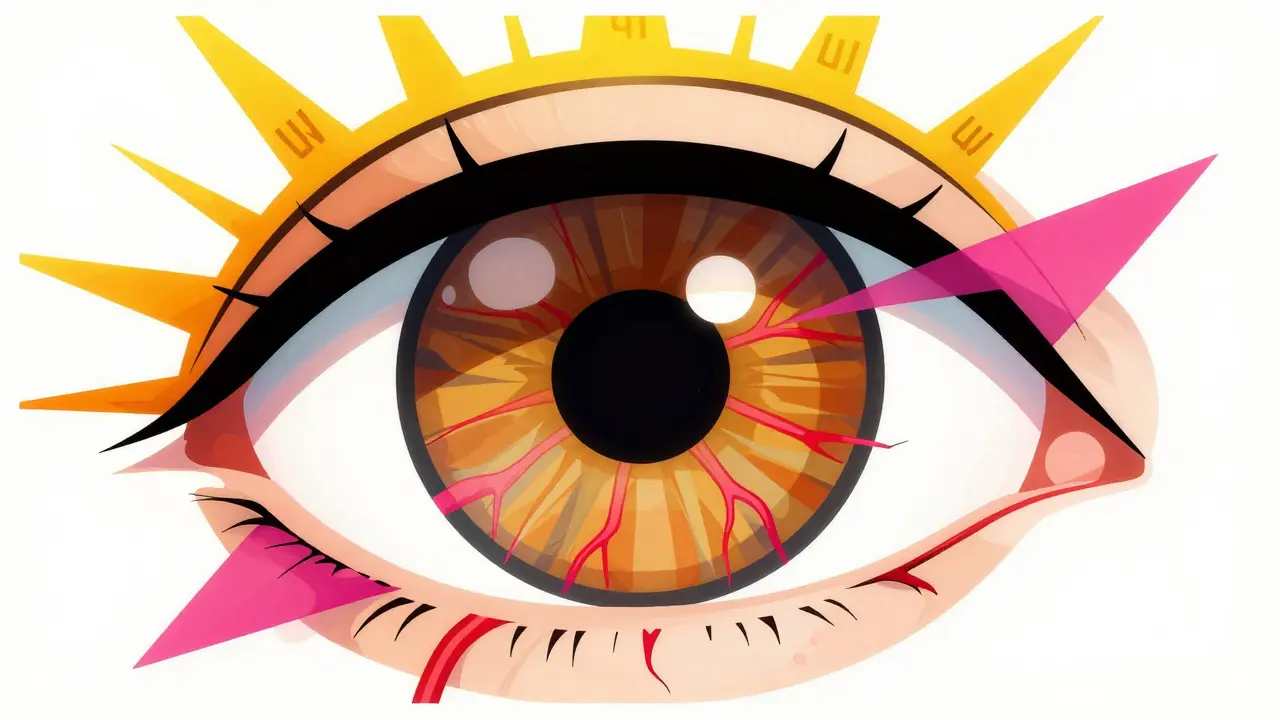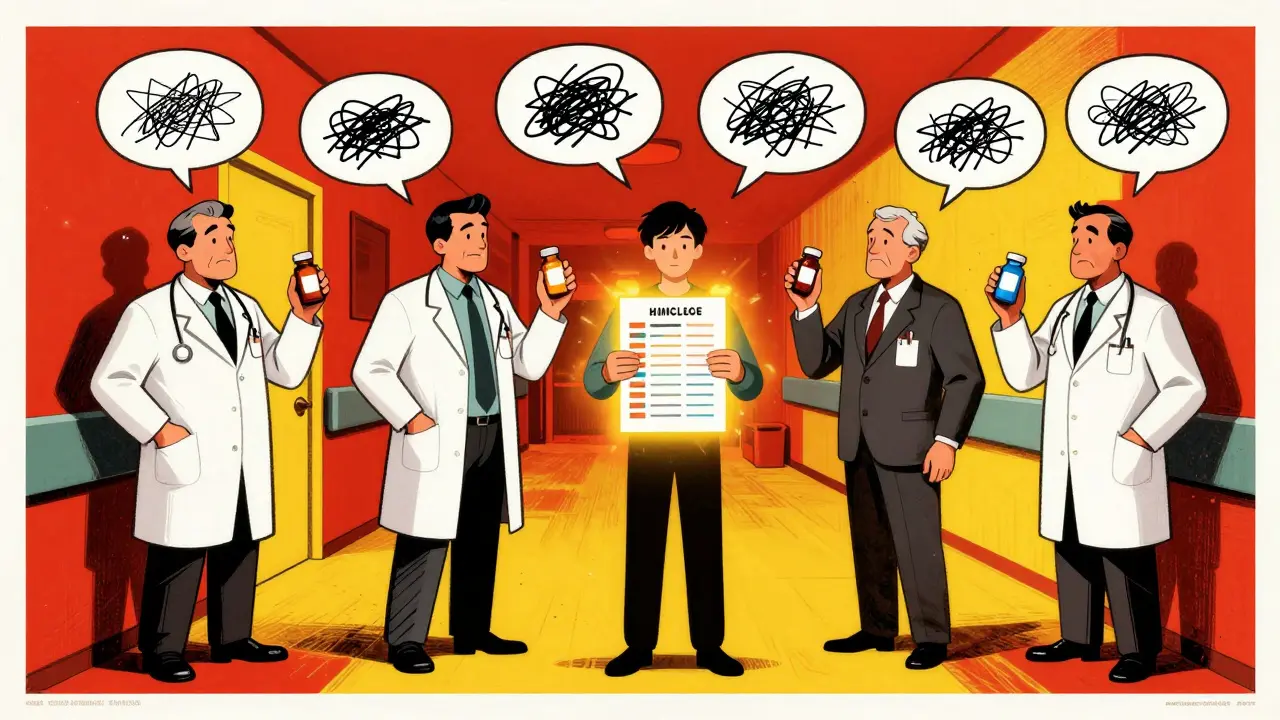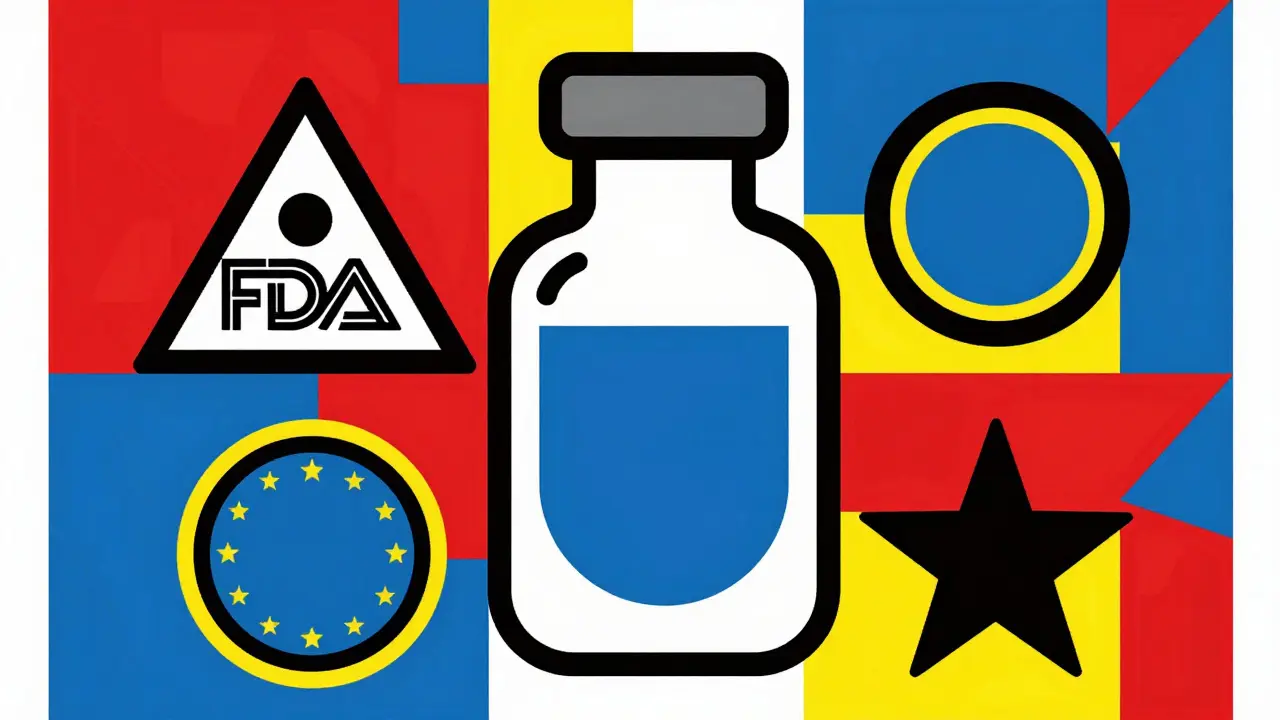Trying to quit drinking is tough, and taking Antabuse (disulfiram) isn’t for everyone. The idea of getting violently sick if you drink even a drop of alcohol can be scary, and sometimes it’s just not the right fit. Luckily, there are other meds doctors can use to help people stay sober or cut back on booze.
Most alternatives to Antabuse don’t punish you for drinking. Instead, they tweak how your brain reacts to alcohol, blunt cravings, or make drinking less enjoyable. Some are FDA-approved; others are used "off-label" (that means they’re not officially approved for alcohol use disorder but may still help). Don’t get spooked by the medical jargon—you’ll see exactly what each one does, how it stacks up against Antabuse, and what sort of hassles or side effects to expect. If you or someone you care about is looking beyond Antabuse, understanding these options is a slam dunk first step.
- Naltrexone
- Acamprosate
- Nalmefene
- Topiramate
- Gabapentin
- Baclofen
- Ondansetron
- Sodium Oxybate
- Summary Table and Takeaways
Naltrexone
Naltrexone is one of the main Antabuse alternatives doctors offer for people trying to manage their drinking. You’ll run into it under the brand names ReVia and Vivitrol. It’s been around for years and is actually FDA-approved for treating alcohol dependence.
What naltrexone does is block the high or the pleasure you get from alcohol. It works by sticking to opioid receptors in your brain. So, if you drink while you’re taking naltrexone, you won’t feel that rewarding buzz that usually keeps people coming back for more. Some people say it takes the "fun" out of drinking. For a lot of folks, this makes it way easier to cut back or quit drinking altogether.
You can take it as a daily pill, but there’s also a monthly shot (Vivitrol) that your doctor can give you. The shot is a good call if sticking to a daily pill is tricky, or if you want that extra push to avoid slipping up.
Pros
- Doesn’t cause you to get sick if you slip and drink
- Reduces cravings and the urge to drink for many people
- FDA-approved with lots of real-world research behind it
- Comes in both daily pill and once-a-month shot
- Doesn’t interact dangerously with alcohol, so accidental drinking isn’t an emergency
Cons
- Won’t create a physical "block"—it relies on reducing pleasure, not causing illness
- Not effective for everyone—about 1 in 3 people don’t see big benefits
- Can’t be used by people who need opioid painkillers or those with certain liver issues
- Possible side effects: nausea, headache, fatigue, or mood changes
- May not stop all cravings, especially if drinking is tied to stress or triggers
If you want to see how naltrexone compares to Antabuse, here’s a quick reference:
| Medication | Main Effect | Requires Avoiding Alcohol? | Route |
|---|---|---|---|
| Antabuse | Causes sickness if you drink | Absolutely | Pill |
| Naltrexone | Blunts pleasure of drinking | No, but it helps you not want to | Pill or shot |
Straight talk: naltrexone won’t make you feel guilty or sick if you drink—even if you’ve had a hard day and mess up. But if you’re really hoping to just lower the cravings or take the edge off your drinking habits, it’s a strong alternative to Antabuse.
Acamprosate
If the hang-ups with Antabuse alternatives are the side effects or the "punishment approach," acamprosate is worth a look. Its brand name is Campral. This pill isn’t about making you sick if you slip up; instead, it helps keep your brain more balanced after you stop drinking. Basically, booze scrambles your nerves, and acamprosate brings things closer to normal, so you’re not always on the edge, craving another drink.
Here’s the catch: acamprosate doesn’t help with withdrawal shakes or symptoms—the rough stuff you get right after you quit. It’s for folks who’ve already gone through withdrawal and want to stay off alcohol for the long haul. Experts think it works by calming overactive neurotransmitters, especially glutamate. The science is still a bit fuzzy, but plenty of real people say it cuts down that gnawing urge to drink.
Pros
- No bad reaction with alcohol (so you won’t get sick if you drink anyway).
- Helps beat that relentless desire to pick up a drink again.
- Doesn’t mess with your liver—this is huge if you already have liver problems from drinking.
- Can be taken with other medicines for depression or anxiety, so it fits with common treatments.
- Usually pretty well-tolerated; the most common side effect is diarrhea, and that’s about it for most people.
Cons
- You have to take it three times a day, every day—people forget, so sticking with it can be tricky.
- Doesn’t work well if you’re still drinking heavily—works best once you’ve already detoxed.
- There’s no "magic high" or major feel-good effect, so you might wonder if it’s even doing anything at first.
- Can cause stomach issues (mainly diarrhea), and rarely, skin reactions.
- Doesn’t help much with withdrawal symptoms—you need other meds for that stage.
If you’re serious about staying sober and want a steady, quiet helper in your corner, acamprosate could fit. The drug’s been solidly studied, and one Danish study found people who took it were about 20% less likely to return to drinking than those who didn’t take any medication. It’s not a silver bullet, but it’s got a long track record in the fight for alcohol dependence recovery.
Nalmefene
Nalmefene is a pretty interesting option when you’re looking for Antabuse alternatives. It works a lot like naltrexone because it’s an opioid receptor modulator, which basically means it messes with the reward system in your brain that alcohol triggers. Unlike Antabuse, which punishes you for drinking, nalmefene tries to make you want alcohol less.
While the FDA hasn’t approved nalmefene for alcohol dependence in the U.S., it’s gotten the green light in Europe since 2013. Docs there prescribe it as Selincro, mostly for people who want to reduce their heavy drinking rather than quit completely. If you take nalmefene only on the days you’re at risk for drinking, you can feel more in control without locking yourself into a daily pill routine.
One cool fact: in studies, folks using nalmefene cut down their number of heavy drinking days per month by about three compared to folks who only got counseling. Not bad if you’re focused on progress, not perfection.
Pros
- Doesn’t make you sick if you slip up—no harsh Antabuse-type reactions.
- Flexible "as needed" dosing instead of every day.
- Helped some people slice their heavy drinking by about 25% in European studies.
- Works for those who want to reduce drinking, not just go cold turkey.
- Side effects are usually mild, like nausea or trouble sleeping.
Cons
- Not available in the U.S.—only in Europe and some other countries.
- Can’t use if you’re already on opioid painkillers (can block their effect, trigger withdrawal).
- Doesn’t work for everyone—about one in three people don’t see much benefit.
- Side effects, though mild for most, can still include dizziness, insomnia, and feeling sick to your stomach.
- Doesn’t force you to stop—it’s more about helping you cut back, so you’ll need some willpower.
| Nalmefene (Selincro) Facts | Details |
|---|---|
| Approved for alcohol use disorder | Yes, in Europe |
| Dosing | "As needed," taken before drinking situations |
| Main side effects | Nausea, dizziness, insomnia |
| Can be used with opioid meds? | No |
For those who want something outside the "punishment" camp of Antabuse, nalmefene offers a more flexible, less intimidating choice—at least, if you can get your hands on it.
Topiramate
Topiramate might ring a bell for folks who know it as a seizure or migraine medicine, but it’s also making waves as an off-label alternative to Antabuse for alcohol use disorder. While it’s not officially FDA-approved for this, doctors are using it more often to help people cut back or quit drinking because the research is surprisingly good.
So, how does it work? Topiramate messes with certain brain chemicals that fire up when you drink—mostly GABA and glutamate. Basically, it lowers both the high and the craving that alcohol usually brings on. That’s a huge deal if you keep thinking about alcohol even when you’re trying to stay away from it.
Pros
- Reduces alcohol cravings and the rewarding buzz you get from drinking. In some studies, people taking topiramate drank less and had more sober days than those on sugar pills.
- Doesn’t punish you with sickness if you slip up and drink, so there’s less fear compared to Antabuse.
- May help with anxiety or trouble sleeping, which pop up a lot when you’re quitting alcohol.
- No alcohol-food interactions, so you don’t have to worry about salad dressings or mouthwash the way you do with Antabuse.
Cons
- The list of side effects can get annoying. Common ones are tingling in your hands/feet, trouble focusing, and feeling tired or spacey. A few people get kidney stones.
- It’s off-label for alcohol problems in the U.S.—that means using it depends on whether your doctor is comfortable prescribing it for this purpose.
- Dosing needs to be started low and increased slowly to avoid side effects, which isn’t great if you want something quick and simple.
- Might not work for everyone—people with a history of depression, eating disorders, or kidney issues need to be careful and talk it over with their doctor.
Check out how topiramate performed in a typical study comparing it with a placebo:
| Group | % Days Abstinent | Heavy Drinking Days/Month |
|---|---|---|
| Topiramate | 60% | 4 |
| Placebo | 45% | 9 |
If you’re frustrated with constant cravings or the idea of triggering a brutal reaction from Antabuse, topiramate could be a steady, behind-the-scenes helper for chipping away at those drinking urges. Just keep an eye on side effects—some people love it, some bail after a few weeks.

Gabapentin
Gabapentin sits in a bit of a gray zone—it's officially meant for nerve pain and seizures, but doctors have found it helps with alcohol dependence too. It's no magic bullet, but for some people, it takes the edge off cravings and helps with insomnia and anxiety that pop up when kicking the bottle.
This med doesn’t block the high or punish you for drinking, unlike Antabuse. Instead, gabapentin calms overactive nerves (which tend to go haywire after long-term drinking) and soothes withdrawal symptoms. You take pills daily, and docs usually start on a low dose and increase as needed.
Pros
- Can cut down alcohol cravings, especially for people who feel super anxious or can’t sleep when quitting.
- Not disulfiram, so no risk of getting violently sick if you slip up and drink alcohol. No "Antabuse reaction."
- Helps with insomnia and restlessness—two things that often sabotage early recovery.
- Can be used in people who have mild liver problems (unlike some other meds).
- Easy to start and stop—no special monitoring needed for most people.
Cons
- Not FDA-approved for alcohol dependence—doctors use it "off-label," so insurance might not always cover it.
- Doesn't stop you from feeling alcohol’s effects, so it’s easier to "drink through" the treatment compared to Antabuse.
- Can cause grogginess, dizziness, or swelling in some people.
- Shouldn’t mix with heavy sedating meds or alcohol—can make you overly drowsy or unsteady.
- Risk for misuse if you have a history of addiction to pills.
Researchers have looked into gabapentin in clinical trials. In a well-known study, 27% of those taking gabapentin stayed completely sober during treatment, compared to 9% on placebo. While it won't work for everyone, and it doesn’t replace counseling or support groups, gabapentin is a serious alternative for some folks who just can’t handle the old-school approaches to cutting out booze.
| Feature | Gabapentin | Antabuse (Disulfiram) |
|---|---|---|
| Main Purpose | Reduces cravings, manages anxiety and insomnia | Punishes drinking (makes you sick if you drink alcohol) |
| FDA Approved for Alcohol | No (used off-label) | Yes |
| Weekly Lab Monitoring Needed? | No | Sometimes |
| Risk If You Drink Anyway | Can cause drowsiness, but not dangerous reactions | Can cause severe nausea, vomiting, or worse |
If restless nights and jumpy nerves keep pulling you back to the bottle, it's worth asking your doctor about gabapentin. Just go in with your eyes open—and make sure it’s part of a bigger game plan to beat alcohol dependence for good.
Baclofen
Baclofen is actually a muscle relaxer, but over the past two decades, doctors started trying it out as a way to dial down cravings for alcohol. It's not officially FDA-approved as an Antabuse alternative, but if someone can't handle other meds or hasn't had luck with them, baclofen might be on the table. It works by targeting a brain chemical called GABA, which is also involved in how alcohol chills people out and causes dependence.
There’s some decent evidence for baclofen, especially if you have liver issues (since it’s mostly broken down by the kidneys). A French study back in 2012 grabbed headlines when people on high-dose baclofen saw big drops in heavy drinking days. But results in the US have been mixed, and doctors are still sorting out what types of drinkers benefit most. It’s usually seen as a second or third choice after naltrexone and acamprosate.
Pros
- Can be used safely even if your liver’s beat up, which is common in long-term drinkers.
- Might help with both cravings and anxiety (pretty common in recovery).
- Doesn't make you sick if you slip up and have a drink—no Antabuse-style "punishment."
- Some people can actually get down to almost no desire to drink when the dose is right.
Cons
- Not FDA-approved for alcohol use disorder (your insurance may not cover it for that).
- Too much baclofen can make you drowsy, dizzy, or clumsy, especially at higher doses.
- Can interact with other meds that make you tired or depress the nervous system.
- If you stop suddenly, you can get withdrawal—so you have to taper down if you want to quit.
- The right dose isn’t clear—some people need a little; others need a lot, so it's a trial and error thing.
Here’s a quick look at some typical baclofen side effects from clinical data:
| Side Effect | Approximate Frequency |
|---|---|
| Drowsiness | Up to 15% |
| Dizziness | 10-14% |
| Weakness or Fatigue | 8-10% |
| Insomnia | 3-6% |
If you're thinking about alternatives to Antabuse and you've had bad reactions to other meds, it's worth asking your doctor about baclofen. Just keep in mind—it's not a magic bullet. Personal motivation and support go a long way, no matter what pill you pick.
Ondansetron
Now, you probably recognize ondansetron as a medicine your doctor gives for nausea—lots of people get it after chemo or surgery. But here’s the twist: research has shown it’s also useful for certain people with alcohol use disorder, making it a surprising player among Antabuse alternatives.
Ondansetron works by blocking specific serotonin signals in the brain tied to craving and reward. It’s not for everyone, though. The studies show it’s most effective in people who started having alcohol problems early in life—think before age 25—not so much in older folks. And the dose used for drinking is usually tiny, much less than what you’d get for nausea.
The National Institute on Alcohol Abuse and Alcoholism funded several studies showing lower rates of heavy drinking with ondansetron versus placebo in early-onset alcoholics. In one well-known study, folks taking ondansetron had 70% fewer drinks per drinking day compared to those on a dummy pill.
Pros
- Low risk of serious side effects—most people tolerate it well.
- No alcohol-illness reaction like Antabuse.
- Especially effective for early-onset alcohol use disorder.
- Dose is low, so there’s less risk for upset stomach or headaches.
- Available as a tablet or dissolvable strip, so easy to take.
Cons
- Doesn’t work as well for those who started heavy drinking later in life.
- Not FDA approved for alcohol use disorder, so insurance might not cover it and some doctors aren’t familiar with it in this context.
- Not much effect on cravings for everyone—very much a targeted tool.
- Rare risk of irregular heart rhythm, especially if you have certain heart conditions or take some other meds.
Ondansetron may not be as famous as naltrexone or Antabuse, but for a slice of the drinking population, it’s actually a pretty strong option with hardly any major drama on the side-effect front. Always double-check with your doctor, especially if you have heart issues or take other drugs that mess with your heart rhythm.
| Use Case | Effectiveness | Common Side Effects |
|---|---|---|
| Early-onset alcoholism (<25 years old) | High (in studies) | Headache, constipation, some rare heart effects |
| Late-onset alcoholism | Low to none | Same as above |
Sodium Oxybate
Sodium oxybate doesn’t come up as often as other Antabuse alternatives, mostly because it’s more common in Europe than in the U.S. and it’s heavily regulated due to its history (it’s the same stuff as GHB, sometimes called a "club drug"). But believe it or not, it’s approved in some countries to treat alcohol dependence.
So what’s the deal? Unlike Antabuse, sodium oxybate doesn’t make you sick if you drink. Instead, it works by mimicking a natural brain chemical (GABA) that calms you down and can reduce the desire to reach for a drink in the first place. For some folks, it actually helps reduce cravings and withdrawal symptoms so they can focus on recovery.
One interesting thing: in a big European study, people taking sodium oxybate were more likely to stay off alcohol after detox than those taking a placebo. The numbers? After six months, about 33% of people on sodium oxybate stayed completely sober, compared to 14% on placebo. Not perfect, but it helps.
Pros
- Shown to reduce alcohol cravings and withdrawal symptoms.
- May increase chances of staying sober after detox (especially with therapy).
- Works differently from Antabuse, which gives people another choice if they can’t handle disulfiram side effects.
- No "antabuse reaction" (nasty sickness) if alcohol’s consumed.
Cons
- Not approved for alcohol use disorder in the U.S.; only certain European countries prescribe it.
- Strict regulations due to its abuse potential (can be addictive or misused).
- Possible side effects: dizziness, sleepiness, nausea—some people can’t tolerate it.
- Close monitoring needed, so you’ll need regular check-ins if you’re prescribed this.
- People with a history of drug abuse might be turned down due to the risk.
| Treatment | Sober at 6 Months |
|---|---|
| Sodium Oxybate | 33% |
| Placebo | 14% |
If you’re in the U.S., chances are you won’t be prescribed sodium oxybate for problem drinking. But if you’re abroad, especially in Italy or Austria, it might be something your doctor brings up. Either way, it’s a unique tool among Antabuse alternatives, especially if cravings and withdrawal are your biggest hurdles.

Summary Table and Takeaways
When it comes to kicking alcohol, there’s no one-size-fits-all answer. Antabuse alternatives give people more ways to approach sobriety, so let's stack up what each one actually does. Here’s a straightforward look at these meds in a head-to-head format:
| Name | How It Works | Biggest Pros | Common Cons | FDA-Approved? |
|---|---|---|---|---|
| Naltrexone | Blocks alcohol's "buzz" by hitting brain opioid receptors | Lessens cravings, no punishment if you slip | Nausea, best for people who want to cut down | Yes |
| Acamprosate | Helps brain balance after quitting | Works well after withdrawal, low liver risk | Must take 3 times a day, diarrhea | Yes |
| Nalmefene | Similar to naltrexone—blocks reward in brain | Flexible "as needed" dosing (Europe) | Not in U.S.; mild nausea, headaches | No (U.S.), Yes (EU) |
| Topiramate | Alters brain signals, cuts cravings | Helps heavy drinkers, can aid weight loss | Brain fog, tingling, not officially approved | No |
| Gabapentin | Calms nerves, reduces withdrawal and cravings | Improves sleep; helps with anxiety | Drowsiness, off-label only | No |
| Baclofen | Relaxes muscles and nervous system | May help when nothing else works | Dizziness, can be sedating | No |
| Ondansetron | Blocks certain serotonin signals | Best for early onset alcohol issues | Rarely used, off-label | No |
| Sodium Oxybate | Helps stabilize GABA in the brain | Used in Europe, reduces cravings and withdrawal | Addictive potential, limited U.S. use | No (U.S.), Yes (EU) |
If Antabuse alternatives are on your mind, here’s what matters:
- Antabuse punishes slip-ups, but most alternatives just block enjoyment or cravings.
- Naltrexone and acamprosate have the most evidence and are FDA-approved for alcohol dependence.
- Some meds, like topiramate and gabapentin, are "off-label" — so your doctor can prescribe them, but insurance may or may not pay.
- European options (like nalmefene and sodium oxybate) aren’t available or common in the U.S. yet.
A quick pointer: about half of patients on meds like naltrexone still see a drop in drinking even if they have the occasional drink. So, perfection isn’t always required for improvement.
Bottom line? Talk these options over with your doctor. It’s not just about what’s on the prescription pad—it’s about what you’re most willing (and able) to stick with. Your path to quitting drinking might need some trial and error, and that’s normal for recovery. Keep asking questions, and don’t settle for a one-size-fits-all plan.







sneha kapuri
April 19, 2025 AT 22:24Wow, another glossy list of so‑called "alternatives" while the real issue – the person's will to change – gets swept under the rug. You toss around drug names like candy, pretending they’re miracle solutions, yet you ignore the brutal truth that most of these meds fail without hardcore therapy. Antabuse may be scary, but at least it forces you to confront your addiction; these gentler pills just let you float around in denial. And let’s be clear: marketing fancy brand names doesn't magically turn a half‑hearted prescription into a cure. If you think swapping one pill for another solves the problem, you’re living in a fantasy.
Harshitha Uppada
April 20, 2025 AT 03:57i guess they tried, but srsly ths list feels like a lazy copy‑paste from a pharmacy catalog. every drug is just another band‑aid, no deep dive into why people keep reaching for the bottle. the article hops from naltrexone to gabapentin like it’s a fashion runway, forgetting the human story behind each prescription. also, why no mention of the cost? people cant afford all these fancy meds, especially in india.
Randy Faulk
April 20, 2025 AT 09:30When evaluating pharmacological interventions for alcohol use disorder, it is essential to adopt a nuanced, evidence‑based perspective. Naltrexone, for instance, functions as an opioid antagonist, attenuating the reinforcing effects of ethanol by occupying μ‑opioid receptors; numerous randomized controlled trials have demonstrated a modest reduction in heavy drinking days, though its efficacy varies among individuals. Acamprosate, on the other hand, appears to modulate glutamatergic neurotransmission, thereby stabilizing the post‑withdrawal neurochemical milieu; this mechanism contributes to its utility in maintaining abstinence rather than initiating it. Nalmefene offers the advantage of as‑needed dosing, which can be appealing for patients seeking flexibility, yet its availability remains limited outside of Europe, imposing practical constraints. Topiramate, traditionally an antiepileptic, has shown promise in reducing cravings by influencing GABAergic and glutamatergic pathways, though clinicians must vigilantly monitor for cognitive side effects such as word‑finding difficulties and paresthesia. Gabapentin, while not FDA‑approved for this indication, can be beneficial in patients with comorbid neuropathic pain or anxiety, but its potential for misuse warrants careful patient selection. Baclofen’s renal excretion profile renders it a viable option for individuals with compromised hepatic function, yet the dose‑response relationship is notoriously unpredictable, often necessitating incremental titration. Ondansetron, a serotonergic 5‑HT₃ antagonist, demonstrates particular efficacy in early‑onset alcoholics, reducing drinking intensity without inducing sedation. Across these agents, the common thread is the need for comprehensive psychosocial support; medication alone rarely achieves sustained remission. Moreover, clinicians should consider pharmacogenomic factors, such as OPRM1 polymorphisms, which may predict response to opioid antagonists. Insurance coverage, pill burden, and patient adherence also influence therapeutic success, underscoring the importance of individualized treatment planning. Finally, ongoing research into combination therapies, such as naltrexone paired with acamprosate, holds promise for synergistic effects, potentially addressing both craving and neurochemical dysregulation simultaneously. In practice, a thorough assessment-encompassing medical history, liver function, psychiatric comorbidities, and patient preference-is indispensable before selecting a pharmacotherapy regimen. By integrating these considerations, clinicians can optimize outcomes and support patients on their journey toward lasting sobriety.
Brandi Hagen
April 20, 2025 AT 17:50👏 Wow, look at that lazy copy‑paste vibe, Harshitha. 🙄 You’re basically saying the whole thing is a cheap knock‑off, which, honestly, is exactly what the article feels like-an overpriced brochure for pharma’s profit machine. But let’s not forget that the real drama is how the U.S. healthcare system pushes these pills as quick fixes while ignoring the root cultural issues. The whole "as‑needed dosing" spiel for nalmefene is just a marketing trick to make patients think they have control, when in reality they’re still chained to a prescription. And yeah, cost is a massive barrier-most of these drugs are priced out of reach for the average person, especially in places like India where the healthcare safety net is patchy at best. So sure, the list looks fancy, but it’s a vanity project without real accessibility, and that’s the truth you’re missing.
isabel zurutuza
April 21, 2025 AT 00:47Sure, because nothing beats a pill over willpower.
James Madrid
April 21, 2025 AT 10:30Hey Randy, great rundown-really solid. Just a quick heads‑up: when you mention topiramate’s cognitive side effects, it helps to note that they’re dose‑dependent and often reversible with tapering. Also, a bit of encouragement for anyone reading: medication is most effective when paired with counseling or support groups, so don’t skip that step. Keep the balanced tone; it’s exactly what the community needs.
Justin Valois
April 21, 2025 AT 21:37Honestly, the whole "alternatives" spiel sounds like a US‑centric sales pitch-most of these drugs are pricey and hard to get in america without a hefty insurance plan. Plus, the article never mentions the legal hoops you jump through to get something like baclofen prescribed off‑label. If you’re really looking for a solution, start with the cheap, FDA‑approved options and don’t expect a miracle from a handful of pricey pills.